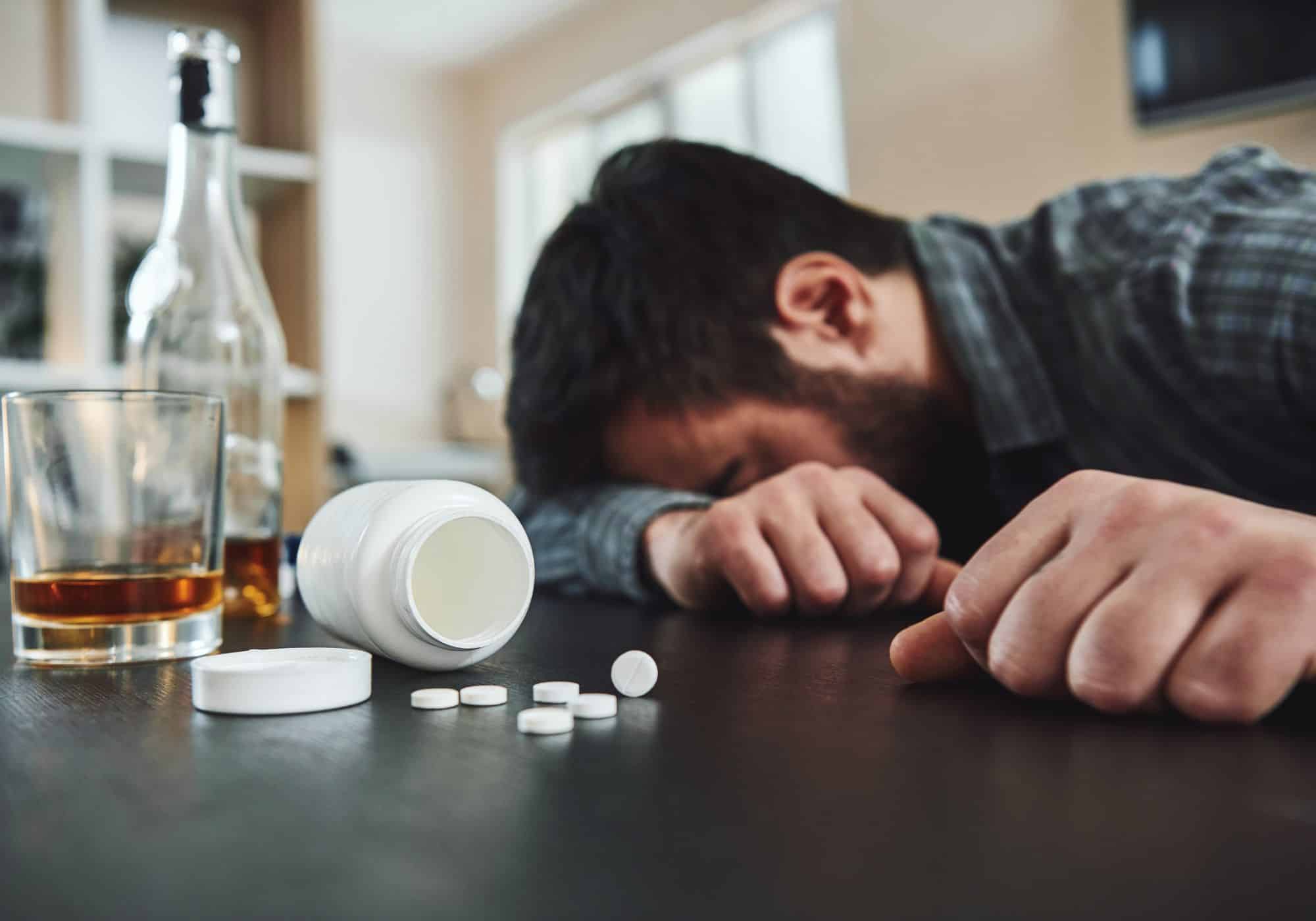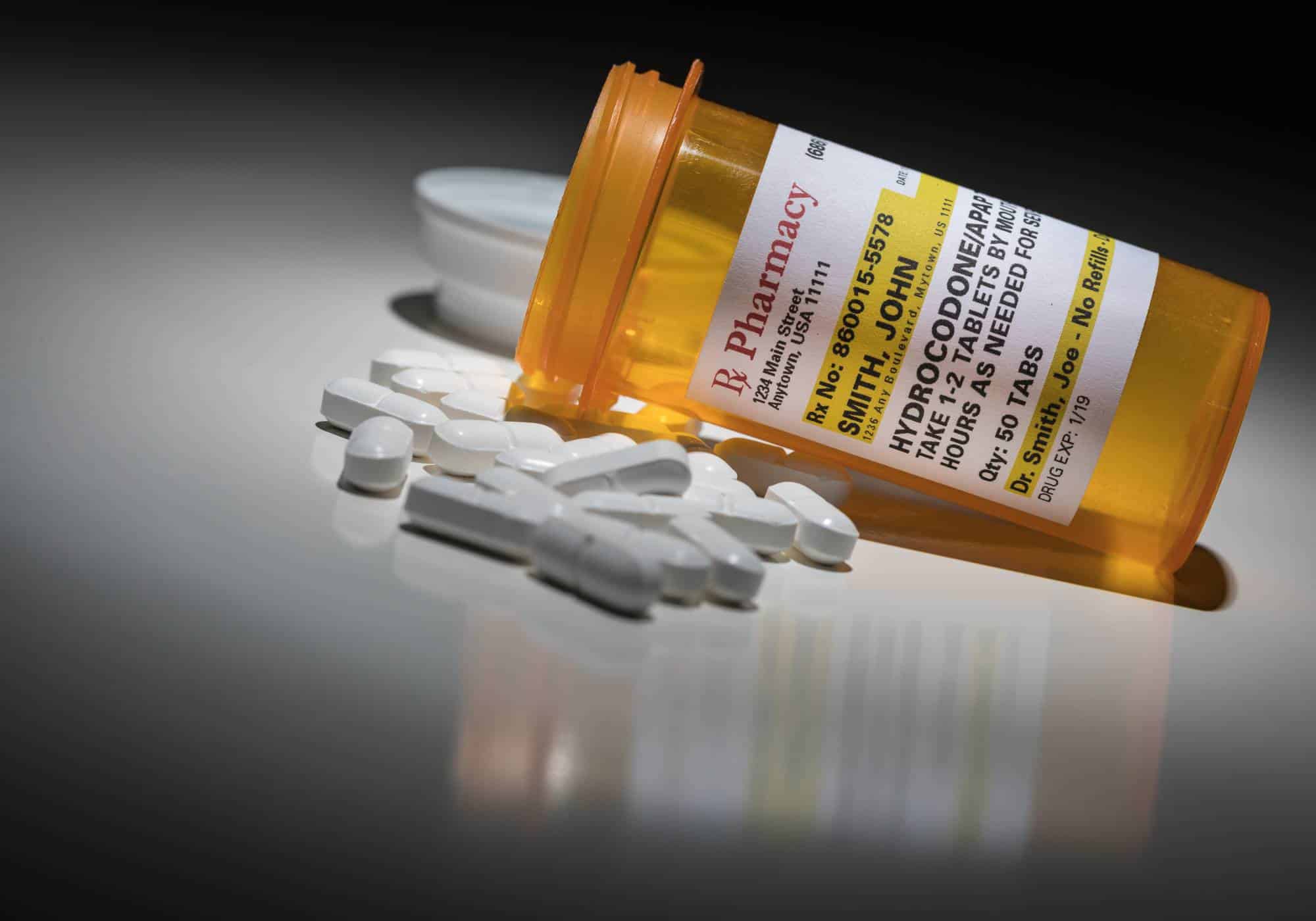Xanax, a drug in the benzodiazepine class, holds the title of being the most commonly prescribed benzodiazepine in the United States. Despite its FDA approval for treating anxiety and panic disorders, Xanax carries a significant risk of misuse, leading to dangerous side effects and addiction. This is especially true when Xanax is not used as prescribed, as it can quickly lead to tolerance and dependency.
Recognized as a Schedule IV controlled substance by federal law, Xanax is seen as having a lower risk of abuse compared to other drugs. However, addiction specialists warn that its addictive potential is high, making it one of the most commonly misused prescription drugs nationwide.
At our Xanax addiction treatment in Atlanta, GA, we offer a range of services and programs specifically designed to help individuals overcome Xanax addiction. Our approach doesn’t just focus on the addiction itself but also addresses underlying conditions such as anxiety and depression, which are often intertwined with substance misuse.
In this article, we delve into the intricacies of Xanax, discussing its intended uses, the risks associated with its misuse, and the pathways to effective treatment for those struggling with Xanax addiction.
What is Xanax?
Xanax, with the generic name Alprazolam, is part of the benzodiazepine medication class, known for its calming effect on the central nervous system. It’s typically prescribed for short-term management of anxiety and panic attacks, as well as to treat insomnia. However, Xanax is also known for causing withdrawal symptoms and drug interactions more frequently than other similar drugs.
Available in various forms, Xanax can be found as tablets, capsules, or a liquid. Its misuse is common, largely due to the sedative and euphoric effects it produces. Often used recreationally with substances like marijuana and alcohol, Xanax is also involved in concoctions known as “speedballs,” which may include stimulants such as Adderall or cocaine. The illegal manufacture and sale of Xanax on the street lead to risks of counterfeit pills, potentially laced with dangerous substances like fentanyl, significantly increasing the chances of overdose and death.
Xanax and other benzodiazepines are known by various street names, including:
- School bus
- Bars
- Bicycle handlebars
- Sticks
- Xanies
- Footballs
- Hulk
- Zbars
- Benzos
- Blues
- Ladders
- Planks
- Chill Pills
- Downers
- Nerve pills
These names reflect the drug’s appearance and effects, emphasizing the importance of being aware of these terms, especially in contexts where Xanax addiction and abuse may be present. If you or a loved one is struggling with Xanax addiction, don’t hesitate and fill out our contact form or call our admissions team to begin your Xanax addiction treatment in Atlanta, GA today.

What is Xanax Used For?
Xanax, a medication approved by the Food and Drug Administration (FDA), is primarily used for the short-term management of generalized anxiety disorders and panic disorders. Additionally, it’s sometimes prescribed off-label for treating conditions like insomnia and depression.
Among benzodiazepines, Xanax is the most frequently prescribed. To put this into perspective, in 2019, U.S. outpatient pharmacies filled about 92 million benzodiazepine prescriptions, with Xanax (alprazolam) accounting for 38% of these. The misuse of Xanax is a significant concern; in 2020, over 3.4 million people aged 12 and older reportedly misused alprazolam.
Misuse can take various forms, such as consuming higher doses than prescribed, using someone else’s prescription, or taking Xanax for its non-therapeutic effects like inducing euphoria, lowering inhibitions, or altering the effects of other substances. This misuse points to the need for awareness and caution in its prescription and use.
Is Xanax Addictive?
Xanax, known for its potential for misuse and dependency, can indeed be addictive. This risk is particularly heightened in individuals with a personal or family background of substance misuse or substance use disorders.
Statistics from 2020 highlight this concern, revealing that around 1.2 million Americans aged 12 and older were diagnosed with a sedative, hypnotic, or anxiolytic use disorder. This clinical term refers to addiction to benzodiazepines, a category that includes Xanax. These figures underscore the need for careful monitoring and responsible use of Xanax, especially among those with a predisposition to substance-related issues. If you or a loved one are struggling with Xanax addiction, call us today to start your Xanax rehab in Atlanta, GA.
How Long Does it Take to Get Addicted to Xanax?
The progression of Xanax addiction varies from person to person, influenced by several factors including age, genetic predisposition, medical history, dosage, and frequency of use.
Typically, addiction to Xanax can emerge rapidly, often within weeks of regular consumption. However, in some cases, the development of an addiction may be more gradual, potentially unfolding over several months or even up to a year.
What are the Effects of Xanax?
Xanax, when used according to prescription guidelines, is generally safe and effective. It typically brings rapid improvement in conditions like anxiety and insomnia, often within a few hours to a few days of the first dose. Functioning by enhancing calmness in the brain, Xanax reduces heightened levels of excitement and agitation.
When taking Xanax or similar depressant drugs, individuals might experience a range of effects, including:
- Relief from anxiety symptoms.
- Easing of muscle tension.
- Improvement in sleep patterns, beneficial for those with insomnia.
However, like all medications, Xanax can also cause unintended side effects, which may vary depending on individual factors such as dosage, duration of use, and personal health conditions.
Common side effects include:
- Dizziness, leading to a feeling of being light-headed or unsteady.
- Fatigue, resulting in a general sense of tiredness or lethargy.
- Memory issues, which may manifest as forgetfulness or difficulty recalling information.
- Slurred speech, impacting clear verbal communication.
- Blurred vision, affecting visual clarity.
- Poor coordination, potentially leading to unsteadiness or clumsiness.
- Difficulty in concentrating, which can impact daily tasks.
- Irritability, leading to mood swings or a short temper.
- Nausea and vomiting, which may affect digestion.
- Constipation or diarrhea, indicating gastrointestinal disturbances.
- Excessive sweating, beyond normal perspiration levels.
- Headaches, ranging from mild to severe.
- Changes in appetite or weight, either increase or decrease.
It’s important for individuals taking Xanax to be aware of these potential side effects and to consult their healthcare provider if they experience any concerning symptoms. With our Xanax addiction treatment in Atlanta, Georgia, we understand and treat both physical and psychological dependence of Xanax Addiction.
What Does Xanax Feel Like?
Experiencing Xanax differs from person to person, yet it predominantly fosters feelings of calm and relaxation. As a sedative impacting the central nervous system, it may mitigate the symptoms associated with anxiety or panic disorders, leading to a serene mental state, diminished anxiety, and enhanced sleep quality. However, it’s imperative to adhere to the prescribed usage of Xanax to sidestep the possibility of dependence or negative side effects.

Xanax Addiction Symptoms
Xanax ranks among the most addictive prescription medications available. Addiction to Xanax can severely affect both physical health and emotional well-being, making it crucial to recognize the signs and symptoms of dependency early on.
Indicators of Xanax addiction can manifest in various aspects of an individual’s life, including:
- Social Withdrawal: Pulling away from friends, family, and social circles.
- Preoccupation with the Drug: Investing significant time and effort in obtaining Xanax.
- Feelings of Guilt and Shame: Experiencing negative emotions about using the drug.
- Aggressive Behavior: Demonstrating uncharacteristic aggression or irritability.
- Intense Cravings: Having a strong desire or urge to use Xanax.
- Neglecting Responsibilities: Skipping work or school to use or recover from Xanax.
- Financial Strain: Encountering monetary issues due to spending on Xanax.
- Increased Tolerance: Needing more Xanax to achieve the same calming effect.
- Withdrawal Symptoms: Experiencing physical or emotional withdrawal when trying to reduce or stop Xanax use.
- Emotional Instability: Exhibiting mood swings, anxiety, or depression.
- Failed Attempts to Quit: Unsuccessful efforts to control or cease Xanax use leading to feelings of shame.
Addiction often comes with low self-esteem and emotional distress. At our Xanax rehab in Atlanta, GA, we address both the physical and psychological aspects of addiction. We offer a supportive and compassionate environment where individuals can work towards recovery and regain their sense of self-worth and stability. Our Xanax addiction treatment programs are designed to provide the tools and support needed to overcome dependency and foster a healthier, more fulfilling life. Call us today to start your journey to a new you, free from the chains of Xanax addiction.
Xanax Deadly Drug Interactions
Xanax, while beneficial for many, carries significant risks, particularly when misused or combined with other substances. Its potential for addiction is notably higher among those with a history of substance use disorders. Xanax can dangerously interact with various medications and alcohol, significantly heightening side effects. The most perilous risks arise when Xanax is used alongside other central nervous system (CNS) depressants, elevating the likelihood of severe complications, overdose, and even death.
The Risks of Overdosing on Xanax
A Xanax Overdose can initially present with symptoms that may seem benign, such as drowsiness or falling asleep. However, recognizing an overdose can be challenging, as its early signs might resemble alcohol intoxication, including confusion, slurred speech, and unsteady movement. The danger escalates at higher doses or when Xanax is mixed with other depressants, as it can lead to respiratory depression – a critical reduction in breathing that can be fatal.
Symptoms of Xanax Overdose
A Xanax overdose can manifest in various ways, with the symptoms of Xanax overdose ranging from mild to life-threatening, including:
- Confusion and disorientation, often mistaken for drunkenness.
- Impaired coordination, making simple physical tasks difficult.
- Slurred speech, similar to that seen in alcohol intoxication.
- Extreme drowsiness, leading to unconsciousness.
- Nausea, sometimes accompanied by vomiting.
- Depressed respiration, a dangerous slowing down of breathing.
- Coma, a deep state of unconsciousness.
- In worst-case scenarios, death.

Risks of Mixing Xanax with Other Drugs
The combination of Xanax with illicit drugs such as heroin and fentanyl creates an exceptionally hazardous mix. The National Institute on Drug Addiction reported that in 2020, 16% of overdose deaths involving opioids also included benzodiazepines like Xanax. The long-term consequences of such overdoses can be severe, potentially causing brain damage and impairing vital organs like the kidneys, liver, and heart.
Understanding these risks is crucial, particularly for those prescribed Xanax for legitimate medical reasons. It’s essential to use the medication only as directed and avoid combining it with alcohol or other CNS depressants. If you or someone you know is struggling with Xanax addiction, our Xanax addiction treatment in Atlanta, GA is here to provide safe and effective recovery.
Xanax Withdrawal
Xanax withdrawal can be a challenging and complex process, varying greatly depending on how long and how much of the drug has been used. As a short-acting benzodiazepine, Xanax can lead to rapid tolerance development, with the brain becoming accustomed to its effects swiftly. Physical addiction, marked by withdrawal symptoms, can occur within just one to two weeks of use. It’s important to note that there’s no specific timeline or dosage at which Xanax addiction is guaranteed to occur, but the risk increases with prolonged use.
Abrupt Discontinuation and Withdrawal Symptoms
Quitting Xanax abruptly can lead to severe withdrawal symptoms. Even when used as prescribed, managing withdrawal from Xanax requires a careful, gradual tapering process to avoid adverse effects. A 2018 study in the Journal of Addiction Medicine highlighted that Xanax is notably toxic in overdose and can induce more intense withdrawal symptoms compared to other benzodiazepines.
Symptoms of Short-Term Use Xanax Withdrawal
Xanax withdrawal symptoms can manifest even after only a few weeks of use, and reducing or stopping the dosage can trigger them. Symptoms often resemble flu or a hangover and can include:
- Insomnia and disrupted sleep patterns.
- Vivid, unpleasant dreams.
- Restlessness and an inability to stay calm.
- Headaches, ranging from mild to severe.
- General fatigue and tiredness.
- Mood swings and emotional instability.
- Muscle tension and discomfort.
- Increased anxiety and stress.
- Irritability and quick temper.
Chronic Use Xanax Withdrawal Symptoms
For those who have used Xanax over extended periods or at higher doses, withdrawal symptoms are more severe and include:
- Panic attacks with intense fear or discomfort.
- Extreme mood fluctuations.
- Rebound anxiety, potentially worse than the initial anxiety.
- Depressive episodes and persistent sadness.
- Suicidal thoughts or tendencies.
- Muscle aches and pains.
- Numbness or tingling sensations.
Severe Xanax Withdrawal Symptoms
In cases of long-term dependency or high-dose use, withdrawal symptoms can escalate in severity, leading to:
- Rapid heartbeat and palpitations.
- Tremors or uncontrollable shaking.
- Excessive sweating and overheating.
- Hallucinations, seeing or hearing things that aren’t there.
- Confusion and disorientation.
- Nausea and vomiting.
- Hyper-sensitivity to physical sensations, light, and sound.
- Significant weight loss and appetite changes.
- Diarrhea and gastrointestinal distress.
- Intense cravings for the drug.
- Seizures, which can be life-threatening.
- Psychotic events, including delusions or severe paranoia.
Severe withdrawal symptoms like seizures and psychotic episodes highlight the importance of medical supervision during the Xanax withdrawal process. Professional guidance can mitigate risks and provide the necessary support for a safer, more manageable withdrawal experience. Call us today to begin your Xanax addiction treatment in Atlanta, GA.

What to Expect From Our Xanax Addiction Treatment in Atlanta, GA
Our Xanax Addiction Treatment in Atlanta, GA, offers a comprehensive and safe path to recovery, emphasizing the importance of medical supervision, especially during detox. Abruptly stopping Xanax or “quiting cold turkey” can lead to severe withdrawal symptoms; therefore, our Xanax rehab in Atlanta, GA, includes a working with a medical detox facility to ensure the safety and comfort of our clients.
At Hope Harbor Wellness, we recognize that addiction is often intertwined with co-occurring mental health conditions. Our commitment is to support our clients in regaining control over their lives, understanding that recovery is a journey where we accompany them at every step.
Following a detailed evaluation, our experienced professionals develop a personalized treatment plan tailored to each client’s unique needs. We offer a range of treatment options aimed at achieving and maintaining sobriety, all within a supportive and healing environment.
Our Xanax Addiction Treatment Programs Include:
- Partial Hospitalization Program (PHP): Ideal for clients transitioning from detox or a residential program, our PHP in Atlanta, GA provides structured yet flexible care.
- Intensive Outpatient Program (IOP): IOP in Atlanta, GA allows clients to live in sober living homes or their own homes while attending multiple weekly treatment sessions, offering a balance between intensive care and daily life.
- Outpatient Rehab: An outpatient rehab in Atlanta, GA is a program that adapts to individual schedules while providing essential treatment and support.
- Addiction Therapies: Our comprehensive approach includes cognitive-behavioral therapy, dialectical behavior therapy, Narrative Therapy, group therapy, experiential therapy, complementary therapy, and family therapy.
- Holistic Therapy: Focusing on the mind, body, and spirit, this approach treats the whole person, not just the addiction.
- EMDR Therapy: Utilizing Eye Movement Desensitization Reprocessing, this therapy helps clients process and reframe traumatic memories.
- Addiction Treatment Aftercare: We assist in setting personal recovery goals, vital for preventing relapse and sustaining long-term sobriety.
Our approach at Hope Harbor Wellness in Atlanta, GA, is designed to provide a nurturing and effective path to recovery, addressing both the physical and psychological aspects of Xanax addiction. We are here to support you in every phase of your journey to a healthier, addiction-free life, call us today to begin your Xanax rehab in Atlanta, GA.
Is Xanax Rehab Covered by Insurance?
Are you worried about the costs associated with Xanax addiction treatment? Understanding your insurance coverage can be a crucial step in accessing the help you need. At Hope Harbor Wellness, located conveniently for residents in and around Atlanta, GA, we’re here to assist you in this process. Our experienced intake specialists can help clarify how your insurance policy might cover the costs of treatment, whether fully or partially.
Many insurance plans do provide coverage for Xanax rehab, easing the financial burden of getting the necessary help. Don’t let financial concerns hold you back from seeking comprehensive and effective treatment for Xanax addiction. Reach out to us today or fill out our online insurance verification form, and we’ll work with you to find a treatment plan that suits your specific needs and circumstances, ensuring that you can focus on your recovery journey.
Break Free From the Chains of Xanax Addiction in Atlanta, GA
Battling an addiction to Xanax can significantly impact both your health and overall quality of life. At Hope Harbor Wellness, we understand the challenges this addiction brings and are dedicated to helping you or your loved one find the path to recovery. Our woman owned treatment center specializes in expertly addressing Xanax addiction in Atlanta, Georgia. If your looking for “Xanax rehab near me” or “Xanax addiction treatment near me”, don’t hesitate to reach out for the support you need. Visit our contact page or give us a call to speak with one of our caring specialists today. We’re here to help you break free from the grip of Xanax addiction and start your Xanax addiction treatment journey towards a healthier, happier life.
Xanax Addiction Treatment Frequently Asked Questions
Is Xanax Addictive?
Yes, Xanax (alprazolam) is highly addictive. It belongs to the benzodiazepine class of drugs, known for their potential for dependence, especially with long-term or high-dose use.
Can You Get Addicted to Xanax?
Individuals can become addicted to Xanax, particularly if they use it frequently, in high doses, or for extended periods. The risk of addiction increases with misuse, such as taking it without a prescription or combining it with other substances.
How Addictive Is Xanax?
Xanax is considered highly addictive due to its fast-acting properties and its ability to produce significant relaxation and sedation. This can lead to a psychological and physical dependence on the drug.
Why Is Xanax Addictive?
Xanax is addictive because it quickly alters brain chemistry, enhancing the effects of neurotransmitters that produce a calming effect. This leads to a pleasurable sensation, encouraging repeated use and increasing the risk of addiction.
How Long Does It Take to Get Addicted to Xanax?
The time it takes to develop an addiction to Xanax varies. Some individuals may develop dependence within a few weeks of regular use, especially with higher doses.
How Long Does It Take to Become Addicted to Xanax?
Addiction to Xanax can develop rapidly, sometimes within a few weeks of daily use. Factors like dosage, frequency of use, and individual susceptibility play a significant role in how quickly addiction forms.
How Long Does Xanax Stay in Your System?
Xanax can stay in the system for varying durations depending on factors like dosage, frequency of use, and individual metabolism. It’s typically detectable in urine for up to 4 days, in blood for up to 24 hours, and in hair for up to 90 days.
What Are the Options for Xanax Addiction Treatment in Intensive Outpatient Programs (IOP)?
IOP for Xanax addiction offers structured therapy and support while allowing patients to live at home. It typically includes behavioral therapy, group sessions, and regular drug testing, catering to those who need a flexible yet effective treatment approach.
Can You Overdose on Xanax?
Yes, it is possible to overdose on Xanax, especially when taken in large quantities or combined with other substances like alcohol or opioids. An overdose can lead to severe symptoms such as confusion, impaired coordination, slow reflexes, coma, and in extreme cases, death. Recognizing the signs of an overdose and seeking immediate medical attention is crucial for preventing fatal consequences.









